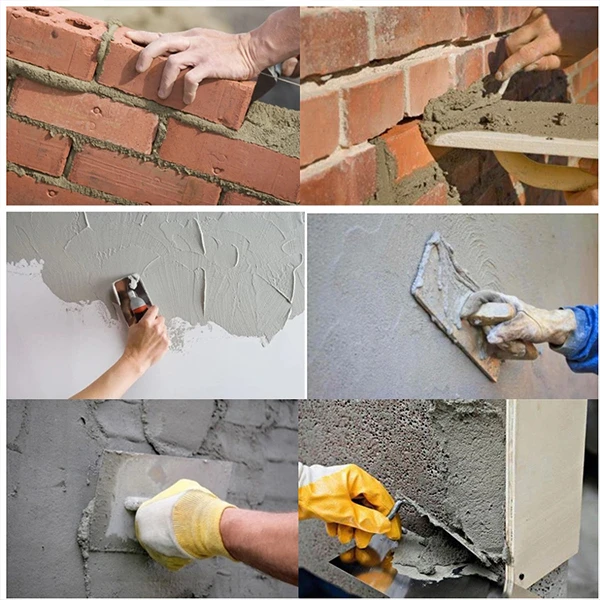The Role of Cement Glue in Modern Construction
Cement glue, often referred to as adhesive cement, is a pivotal component in modern construction and renovation projects. Its versatility and strength have made it an indispensable material for construction professionals and DIY enthusiasts alike. In this article, we will explore the various applications, benefits, and considerations surrounding the use of cement glue.
Applications of Cement Glue
Cement glue is primarily used to bond a variety of materials, including ceramic tiles, natural stones, concrete, and even certain types of woods and metals. One of its most common applications is in tile installation. When laying tiles on floors or walls, a strong adhesive bond is crucial to ensure durability and prevent cracking. Cement glue offers excellent bonding strength, which is essential for maintaining the integrity of tiled surfaces under various conditions.
In addition to tile installation, cement glue is also advantageous in fixing broken ceramic or stone items. Homeowners can utilize it for minor repairs, such as reattaching a broken flower pot or a chipped countertop, saving both time and money. Furthermore, cement glue is employed in masonry work, helping to bind bricks and blocks together securely. Its water-resistant properties also make it a suitable choice for outdoor constructions, where exposure to moisture is a concern.
Benefits of Using Cement Glue
One of the standout benefits of cement glue is its exceptional bonding capability. Unlike traditional adhesives, which may weaken over time or under certain environmental conditions, cement glue provides a long-lasting bond that can withstand heavy loads and stress. Additionally, cement glue is resistant to heat and moisture, making it ideal for a wide array of applications in both indoor and outdoor environments.
Another advantage is its adaptability. Cement glue can be mixed with various additives to enhance its properties, such as improving flexibility or reducing curing time. This customization allows contractors to select the right type of adhesive for specific projects, ensuring optimal performance and results.
cement glue

Moreover, cement glue is relatively easy to apply
. Most formulations come ready to use or require minimal mixing, making it accessible even for those with limited experience. The setting time can vary, but many products offer a quick curing process, allowing projects to progress without lengthy delays.Considerations When Using Cement Glue
While cement glue has numerous benefits, there are important considerations to keep in mind. First, it’s crucial to select the right type of cement glue for the specific materials involved in the project. Not all glues are created equal; some are formulated specifically for tile, while others may be designed for masonry or wood. Misapplication can lead to poor bonding and compromised structures.
Proper surface preparation is also vital for optimal adhesion. Surfaces should be clean, dry, and free from contaminants. This ensures that the cement glue can form a tight bond without any hindrances.
Finally, safety precautions should not be overlooked. While cement glue is generally safe to handle, it’s advisable to use gloves and other protective gear to minimize skin contact and inhalation of dust during the mixing and application process.
Conclusion
Cement glue plays a crucial role in the construction industry, offering a reliable solution for bonding various materials with strength and durability. Its wide range of applications, combined with its adaptability and ease of use, make it a favored choice for many construction projects. By understanding its benefits and considerations, users can effectively leverage cement glue to achieve successful and long-lasting results in their endeavors. Whether for professional use or DIY projects, cement glue remains an essential tool in the modern construction toolkit.
-
The Application and Significance of Construction RdpNewsMay.19,2025
-
Industrial Grade HpmcNewsMay.19,2025
-
Building Coating Adhesive Building Coating Adhesive HpmcNewsMay.19,2025
-
Application Of Hpmc For Detergent For Detergent In DetergentsNewsMay.19,2025
-
Application Of Hpmc Cellulose In Cement-Based MaterialsNewsMay.19,2025
-
Application Of High Quality Hpmc For Construction In The Field Of ConstructionNewsMay.19,2025




